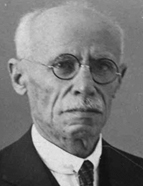

For today ’ s scholars , the comparison between João Lúcio de Azevedo ’ s preparatory essays and the final works to which they gave rise is particularly significant. A work of heuristics and hermeneutics, such a comparison will allow us to understand the contemporary life of the author and how this contemporary life and experience aggravated the questioning to which he subjected the documentation. There is a constant concern to update data on the presence of Jews in the communities of the 19 th and 20 th centuries, on their occupations and organisations, in foreign and national authors. The situation of the Jews in Portugal was understood in comparison with the situation in Europe and America.
The author alluded to an issue of his time, the question of which races were superior in terms of qualities, pure or mixed races, as indicated by biological data, a n issue he commented on by saying that, when enquiring about the decadence of nations and races, other aspects such as soils, climates, social conditions, accidents and nature, the actions of foreign peoples, the repercussions of events and facts, and many other aspects, should be brought to the fore.
He also questioned the influence of African blood on the history of Portugal , a possible transfer to Portuguese history of the polemics of Brazilian history. As for the New Christians, he praised their intelligence, adaptability to different circumstances , and role in international relations in the 17 th century. Father António Vieira would have been sympathetic to this role, ‘less, it must be said, out of feelings of humanity and tolerance than out of political inspirations’. This, at least initially. This is what he maintained ever since lamenting the consequences of the Inquisition ’ s establishment in the country ; he considered that, by the fatality of history, the disastrous institution had fulfilled the role that D. João III, like the other absolut ist rulers of modern times, had given it – to guarantee the identity of the political principle, an indispensable complement to the unity of royal power. Lúcio d ’ Azevedo emphasised that everywhere , the intolerance of the state in religious matters was a reason for government and not for conscience. This was the case in Portugal, as it had been among the Huguenots, among the American colonists, in France at the time of Louis XIV or in the German principalities.
This work is financed by national funds through FCT - Foundation for Science and Technology, I.P, in the scope of the projects UIDB/04311/2020 and UIDP/04311/2020.
